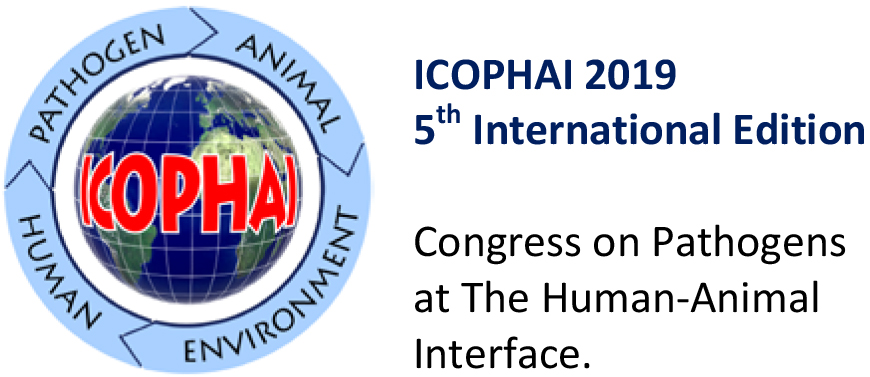History of the International Consortium on Pathogens at the Human Animal Interface (ICOPHAI)
The consortium, known as originally known as the VPH Biotech (VPH-Biotec) Consortium, was created in 2009 as an academic partnership between foodborne pathogen epidemiology laboratories at The Ohio State University, Infectious Diseases Molecular Epidemiology Laboratory (IDMEL) and partners in various global regions including eastern Africa (such as Kenya Medical Research Institute, Addis Ababa University and Sokoine Univ. of Agriculture); Brazil (mainly the Federal University of Paraiba) and Thailand (Chiang Mai University). Through the commitment of individual principal investigators and driven by the urgency of the global rise in emerging zoonotic and multi-drug resistant pathogens associated with food animals, the partners quickly realized the need for working collaboratively and forming knowledge-sharing partnerships with an emphasis on research and training capacity building, both major gaps that have not been addressed by other global groups.
In order to realize these goals, in 2011, the VPH-Biotec consortium held its first congress at the United Nations Conference Centre in Addis Ababa, Ethiopia and ICOPHAI (International Congress on Pathogens at the Human Animal Interface) was born. The inaugural congress attracted 365 participants from 45 nations, primarily from developing regions; sub-Saharan Africa, Asia-Pacific and Latin America. The 2nd ICOPHAI was in 2013 in Brazil with over 700 registrants from 45 countries with 150+ organizations represented. The outcome of the two previous congresses was published recently: http://journals.plos.org/plosntds/article?id=10.1371/journal.pntd.0003257. In 2015, the 3rd ICOPHAI congress was held in Chiang Mai, Thailand. It was preceded by three parallel workshops including 1) Antimicrobial Resistance organized by the regional WHO collaborating center; 2) Molecular Epidemiology of infectious diseases organized by multiple partners and 3) Grant writing and scientific communication workshop.
This biennial congress is intended to focus knowledge-sharing among developing regions (South South) and actively works to foster collaborative engagement with the developed world (South North). Collaborations, communication and knowledge sharing among scientific leaders from areas where diseases are most likely to emerge is critical in achieving an interdependent, globally coherent response and prediction strategy for pathogens at the Human Animal Interface. It is critical that such networks and partnerships are created before a new disease emerges rather than after the fact. The 4th ICOPHAI in Doha, Qatar uniquely aims to coalesce in one venue the latest critical information on Environmental changes and Impact on Global Health from prominent scholars from both developing and developed countries in order to promote strong South-South and South-North working groups, networks and collaborations.

